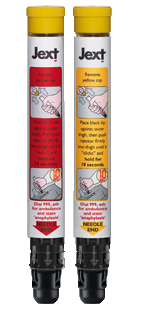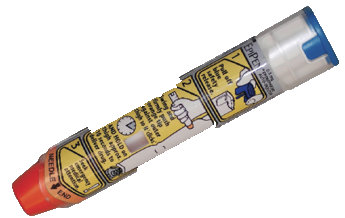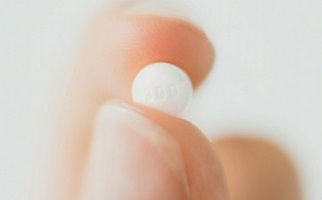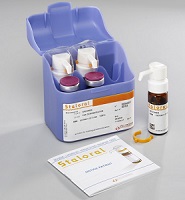Following the diagnosis, Dr Ali will talk to you about managing your allergy and the best way forward for you. Desensitisation for rhinitis and anti-IgE therapy for severe asthma and urticaria are two of the cutting edge treatments available. You will be given a full self-management plan, which will also be sent to your GP and other doctors.
This is the cornerstone of allergy treatment but the degree of difficulty in achieving total avoidance will clearly depend on the kind of allergy. Dr Ali will discuss practical measures with you, appropriate to your particular allergy. If you have a food allergy, Dr Ali may refer you to a specialist allergy dietitian for support with avoidance measures.
A wide variety of drugs are used to either control allergy or provide emergency treatment and Dr Ali will select the most appropriate for you. The most common include:
Antihistamines are probably the best-known type of allergy medication, and most are readily available from a pharmacy without prescription. They work by blocking the action of histamine, a chemical released by the immune system during an allergic reaction that starts a cascade effect of allergy symptoms.
Antihistamines are usually very safe and modern non-drowsy antihistamines are widely used. Although usually taken as tablets, antihistamines are also available as a liquid/syrup, in cream form (for insect bites or stings) and in nasal sprays and eye drops.
Steroid nasal sprays are commonly used to treat allergies of the nose, such as hayfever and persistent rhinitis (inflammation of the nose). They reduce inflammation and usually work well. However, they do take up to 2 weeks to start working, and so should be begun before the pollen season and used every day to keep symptoms at bay. Stopping this treatment will lead to symptoms returning.
Often patients are worried about side-effects with “steroids”. As the spray is applied directly to the nose, very little of the drug gets into the circulation and sprays can be used safely. Around 10% of patients will experience nosebleeds but this is usually due to incorrect technique of administration. Dr Ali will train you on how to administer nasal sprays and drops correctly and will prescribe you the most well-tolerated and effective products.
Inhalers are the main treatment for asthma and include relievers and preventers. A reliever inhaler is used when needed to ease symptoms when you are breathless, wheezy or tight-chested. The drug in a reliever opens the airways wider, and symptoms usually quickly ease.
If you need a reliever three times a week or more to ease symptoms, a preventer inhaler is usually advised. These are taken every day to prevent symptoms from developing. Preventers contain a steroid, and just like steroid nose sprays, steroid inhalers work by reducing inflammation, this time in the lungs, thereby reducing symptoms such as wheezing. Steroid inhalers are usually taken twice per day. If you have a flare-up of your asthma, Dr Ali may advise you to take the preventer more often. It takes up to 2 weeks for the steroid in a preventer to build up its effect but once asthma symptoms are well controlled you may then not need to use the reliever at all.
Often patients will need both a preventer and a longer acting version of a reliever ( a long acting bronchodilator). These are made in a 2-in-1 device called a combination inhaler, which is taken regularly as another type of preventer.
Inhalers come in different forms. The most well known one is the metered dose inhaler (MDI), which can be used with or without a spacer device, which increases the drug delivery to the lungs, by reducing drug particle size. Breath-activated inhalers and dry powder inhalers are also commonly used and Dr Ali will select the most appropriate inhaler for you.
Adrenaline auto-injectors (AAI’s)

Anaphylaxis is a severe allergic reaction with airway obstruction (difficulty in swallowing or breathing) or a drop in blood pressure (feeling faint or collapsing). It can be fatal. The immediate treatment for anaphylaxis is adrenaline. If you are at risk of anaphylaxis, Dr Ali will prescribe adrenaline auto-injector pens for you.
There are two widely-used types of auto-injector pen: Epipen and Jext. They contain a single dose of adrenaline that can be injected into the body. The adrenaline helps to open the airways so that you can breathe, and to reverse any fall in blood pressure.

If appropriate, Dr Ali will give you a prescription and train you on using an auto-injector pen, using a ‘dummy’ device as part of a full self-management plan.
If you have an extreme allergic reaction, you should always be seen in an emergency department; National Institute for Health and Care Excellence (NICE) guidelines recommend that after emergency treatment for anaphylaxis, all patients must be referred to an allergist.
Desensitisation (Allergen immunotherapy)
The conventional medications used for allergy control the symptoms and reactions but do not cure the condition. Desensitisation (allergen immunotherapy) is a treatment in which a patient receives small amounts of an allergen on a regular basis. The doses are slowly increased over time, causing the patient’s immune system to become less and less sensitive to the allergen.
Desensitisation is the only treatment able to modify the natural history of the disease and offer long-term remission. It is recommended by the World Health Organisation (WHO) for patients with severe allergic rhinitis who have not responded to conventional therapy and are unable to avoid their trigger. Furthermore, the Committee on Safety of Medicines in the UK has issued a warning that seasonal injections of intra-muscular steroid (Kenalog) should not be used due to the risk of unacceptable side-effects.


Desensitisation was traditionally given via injection but can now be given via drops or soluble tablets placed daily under the tongue (sub-lingual immunotherapy or SLIT). This type of treatment is more convenient for patients and is less susceptible to side-effects. It does involve a long-term commitment, however, of 3 years of treatment, starting 2-4 months before and during the pollen season for hayfever, or continuously for year- round allergies such as dust mite and animals. It is not yet approved for the treatment of food allergies.
Dr Ali offers a comprehensive desensitisation service using a range of sub-lingual immunotherapy (SLIT) products. Assessment, test dose and after-care for 3 years is provided.
Anti-IgE therapy (omalizumab; Xolair®)
Anti-IgE (omalizumab; Xolair®) treatment might be recommended if you have severe allergic asthma or chronic idiopathic urticaria and you keep experiencing persistent symptoms despite taking your preventer medications.
If you have allergic asthma (about 50% of asthma is caused by allergy in adults), your symptoms are triggered when you inhale certain allergens in the air. These allergens cause a chain reaction that leads to inflammation in the lungs.
While inhaled steroids work by treating and reducing the inflammation, anti-IgE therapy works by keeping inflammation from developing in the first place. It does so by blocking immunoglobulin E, a substance in the body that is one of the underlying causes of inflammation in allergic asthma. It is highly effective and is approved by the National Institute for Clinical Excellence (NICE) for the treatment of severe, persistent allergic asthma.
Anti-IgE therapy needs to be injected once every two or four weeks, by a nurse on our day case unit. It is meant to complement, not replace, your existing medications. Although many patients taking IgE therapy have been able to halve the dose of their inhaled steroid over time, you will still need to keep taking your other asthma medications as directed by Dr Ali.
Anti-IgE therapy is now also approved for the treatment of chronic idiopathic urticaria (CIU), a form of chronic hives, in patients who remain troubled by symptoms despite treatment with antihistamines. CIU can have burdensome symptoms including swelling, severe itch, pain and discomfort that may last for many months and even years. Dr Ali has successfully used anti-IgE therapy in the treatment of CIU, with excellent results.